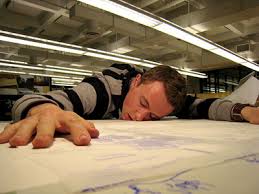 Psychologists from Sigmund Freud onwards have usually treated dreams as purely egotistical and self-centered, with no relevance outside the personal wishes of the dreamer. Every four years I try to prove that assumption wrong.
Psychologists from Sigmund Freud onwards have usually treated dreams as purely egotistical and self-centered, with no relevance outside the personal wishes of the dreamer. Every four years I try to prove that assumption wrong.
In response to my quadrennial request about election-related dreams, several colleagues sent me reports of dreams they have experienced relating to the 2016 campaign for U.S. President. These dreams offer intriguing insights into the impact of the political race on people’s nocturnal imaginations.
(The main work I’ve written on this topic is American Dreamers (2008)).
Four of the dreams involve the leading contender for the Republican nomination, Donald Trump. Three involve the leading Democrat, Hillary Clinton, and one is a “non-partisan” election dream. Bernie Sanders appears in one of the Clinton dreams.
It’s too early to make any definitive assessments or interpretations of the patterns in these dreams. What I can do now is identify possible themes and motifs, and then watch to see if they recur in later dreams.
The Trump dreams below reflect a sense of deep skepticism about his candidacy. They highlight his inability to lead, his hostility to women’s reproductive rights, his macho aggressiveness, and his frightening ability to seduce people’s minds. The dreams reflect and amplify the dreamers’ waking life opposition to Trump’s campaign, casting in vividly emotional and creatively imagistic terms their feelings about him and his policies.
The three Clinton dreams all come from the same dreamer, so they reflect her particular experiences of the political campaign. She describes herself as a Clinton supporter who’s open to much of what Bernie Sanders has been saying in his campaign. This comes out in her dream of both Clinton and Sanders, which anticipated the surprisingly close race for the Democratic nomination.
The last dream is a brief vision of politics beyond politicians.
I will soon post a larger collection of political dreams gathered from surveys and questionnaires, which come from a wider variety of people than those presented in this post, but with less personal background information.
This dream came to “Mary,” on August 16, 2015
“I dream that I am at some sort of business function in a large room with a dance floor. I see former co-workers. In walks Donald Trump. He grabs a microphone and asks if I would come to the dance floor to teach him the Argentine Tango. He is off-beat and awkward, tripping me up with tangled footwork. I suggest that we try a simple four-count box step. Nope. He can’t do that either. I stop the dance. ‘I can’t teach you to lead!’ I leave the dance floor.”
Initial comments from the dreamer: This dream woke me up laughing because even within the dream I understood the metaphor. I rarely throw my opinions about politics, but the message seems pretty clear: Donald Trump Can’t Lead. Let that be my 2016 presidential prediction.
In answer to my follow-up questions, the dreamer said she was not a tango dancer in waking life, so it’s a purely metaphorical reference to that specific style of dance, which famously requires close cooperation between the partners (“it takes two to tango”). The business setting with this particular group of co-workers made the dreamer think of a time in her life when she was not getting along with her colleagues, everyone’s productivity suffered, “and the job environment would up going sour in the end.” This detail adds to the negative atmosphere of the dream, underscoring the theme of failing to work effectively with others.
The following four dreams came to the same individual, “Samantha,” over a period of about a year. She gave each dream a title, along with some responses to my questions at the end.
4-10-16 (night/morning of 4/10-11)
Who’s the Real Hillary Clinton?
I’m observing Hillary Clinton and, at times, her staff but seem to be mostly in Hillary’s mind, going through her day on the campaign, and simultaneously reviewing how I feel about her, getting to know more about her past history and policy stances and decisions, as I watch her work tirelessly, putting in a really long day. Variously, it’s her staffers who are doing this, working devotedly for Hillary, mostly one man and one woman. I realize with some dismay that Hillary has voted for or supported issues I disagree with, that she has been too quick to go to war in the past. I think I ask her, or perhaps I imagine asking her, “What situation if any would prompt you to go to war today? “ I’m deeply concerned about this and her answer will influence my support. She answers, or perhaps I imagine she tells me, that nothing short of defending our country right here would be grounds for war. This is the answer I can live with – self defense only from an actual dire and immediate threat. I learn about and mull over three specific areas – though I could only recall two on waking, war and finances. I find I’m at odds with Hillary’s past decisions on these so I want to be more informed on where she is with these issues today – but I also see her putting in the time, really working hard for the sake of others and not herself. I see the very human side of her, too, see her finally call it a day at the end of a really long day and retreat into her private space. She’s on the road, staying in a hotel somewhere but she carries a worn black case with her from place to place. I’m surprised when she opens the case up that it holds two rows of vinyls, worn looking records, some with album covers, some just old, scratched vinyls, including a 45 of mostly 70’s era music. The 45 is a recording of Three Dog Night’s “Joy to the World”. (I recognized most of the artists in the dream but could only recall Three Dog Night on waking.) This is how Hillary unwinds, listening to music that reflects her life, her past, and what makes her feel happy. I’m pleased by this – it’s so human and something I would do myself. She carries this case with her from hotel to hotel and knows that at the end of her day, it’s waiting for her. I also get glimpses of her staffers this way, so weary, having worked incredibly hard but catching their moments at the end of the day. I just take all of this in, thinking about it, pondering who Hillary really is and how I feel about her.
Note: There may certainly be personal resonance and guidance for me in this dream, but it felt distinctly political, as if I was given a chance to see deeply into these issues and consider them. For the record, I’m a very left, very liberal Democrat and do care about the issues. I’m supporting Hillary but ideologically am very much aligned with Bernie Sanders and support the movement he’s started – and would support him if he won the nomination. This dream did prompt me to dig deeper into each candidate’s position on key policies.
*When I looked up this dream to share it with you, I found two other short dreams I’d recorded – another Hillary dream and one of Trump that seems now to have been pre-cog of his later comments regarding women and abortion.
3-5-16 (night/morning of 3/5-6)
They Got McKinley Instead
Hillary Clinton and three others are standing outside together somewhere and there’s an assassination attempt that fails. Somehow, there’s a lighthearted feeling to this – like it wasn’t really a serious situation. Someone announces they got McKinley instead.
3-16-16 (night/morning of 3/16-17)
You Know How Trump Will React!
Memory of this is sketchy. I recall one clear scene in which someone is trying to convince another person not to do or reveal something to Trump. The secret has to do with pregnancy. I see and hear a woman say to the other person, “You know what he’ll do, don’t you, what he’ll say?” She stuffs a pillow under her shirt to make herself look pregnant. “If you tell him, you know how he’ll react.” She’s very determined to persuade the other person not to set herself up to get browbeaten by this man. There was another scene in which a purplish red color was very dominant and something to do with a meal but I’ve lost the details.
Notes: The 3-5 dream felt as if it dealt with character assassination, an election staple. The Trump dream does seem pre-cog of Trump’s later comments regarding abortion – and doesn’t reflect any known situation in my own life.
1-16-16 (night/morning of 1/16-17)
Election Results Suspense
I’m watching election results. Two side by large, digital counters are flashing the numbers for Bernie Sanders on the left and Hillary Clinton on the right. They’re neck and neck. The numbers get up to the 25 and 26 thousands or millions. I’m anxious because Hillary’s lead is getting slimmer. It’s not enough. The last tally goes up and someone blocks my view just as the last numbers click into place which is very frustrating. I recall thinking there’s still hope as these are exit poll numbers and the actual vote often varies from the exit poll numbers but this is worrisome. Sanders could actually win the election. I can’t believe someone – or something – blocked my view at the last second. EOD
Note: This dream was a few weeks before the primaries began and this is more or less how things have played out – surprisingly, I think as I don’t feel even Senator Sanders thought he would do so well.
I sent Samantha some additional questions, and this was her reply:
“To answer your questions, I do have good recall and have been working with my dreams for years. I would say it’s not unusual for me to dream of presidents or key world figures past or present (the Dalai Lama, Gandhi) but it’s somewhat unusual for me to dream of candidates, though the current presidential candidates are very much in the news. I’ve had a long series of President Obama (and Michelle) dreams but have always felt a personal connection to him. I did a quick search and found that I had one dream of Hillary Clinton in 2008, right around the Democratic convention when she lost the nomination. Interestingly, it was a dream about resilience, hanging tough and getting another chance – exactly what’s happened for her. I’ve definitely had dreams of Presidents Lincoln, Kennedy, Clinton, Bush and Carter in the past.
“Yes, that’s the correct McKinley reference [to the 25th U.S. President William McKinley, who was assassinated in 1901]. I was a little surprised by that one myself – but I grew up with a dad who was a history teacher and loved to quiz me on history and current events.
“In the Trump dream, I definitely felt Trump would deride the pregnant woman for being pregnant in a personal and derogatory way, as if being pregnant was wrong in some way, perhaps shameful or ill-timed or simply undesirable. When I found the dream to send to you, Trump’s comments regarding punishing women who have abortions (which he hadn’t yet made when i had the dream) immediately came to mind. That would certainly not be my personal opinion and it was an uncomfortable feeling in the dream – so yes, about women’s bodies or their choices regarding their bodies, just generally disapproving and/or disrespectful. I looked back at the dream and saw that I noted my “feeling on waking” was dismay.”
This report comes from “Sarah” on March 30, 2016. She titled it “Snake in the Pool.”
In a campus-like setting, frat-boys increasingly intrude upon women. Some of them, with huge testicles, jump naked into a women’s pool and swim circling about in a pack. They don’t notice the coppery poisonous snake that has joined them swimming in the water. In fact, one guy absentmindedly pushes it out of the way without actually looking at it and recognizing it for what it is. Their elder, The Lord of Misrule, arrives: it turns out that he’s Donald Trump. He wears a royal purple satin robe with metallic golden trim, but gaping wide open in front, exposing his nakedness and his big belly. An entourage of fatuous rich and powerful men accompany him. They seem completely brainwashed: they have dull eyes and their mouths hang open. Despite their robes of office they look so imbecilic that it’s scary. (I feel both fear FOR them in their impaired state, and fear OF them because they’re in no condition to wield the power that they have.) The entourage fills up bleachers beside the pool, taking the lower, easiest to reach, front-row seats. I warn some of the other original women about the snake. On my advice we move to the very top of the bleachers, above the men. That poison snake won’t be the only one; I expect a swarm. I know, however, that this variety can’t climb very far, though the lower bleachers that the men occupy are well within their range. I hold no hope for the “leaders”, for they have let themselves become too impaired to defend themselves.
Below are my follow-up questions, and Sarah’s responses:
Do you often dream of people from public life like politicians, or is this a rare event?
I sometimes dream of public figures, more often fictional people, but the outside world, one way or another, does tend to impact my dreams.
How does the dream relate to your waking views of politics generally, and Trump in particular? The dream seems to express a skeptical wariness towards Trump and the other guys. Am I right about that?
That’s pretty true, yes.
Is the “Lord of Misrule” a specific character from a story, or is it something new in this dream?
It’s an historical role, actually. On April Fool’s Day. Someone foolish or of low standing is declared the Lord of Misrule, and put in charge of drunken revelry for one or a few days, variously in Christmas-time, April Fool’s Day, or Saturnalia. Here’s a link on it: https://en.wikipedia.org/wiki/Lord_of_Misrule. I should also mention that, after wondering if the dream might predict something politically, I realized that the women moved to higher ground that the men were too stupified to attain and thus escaped being poisoned–which might indicate that Trump would win the nomination, but Clinton win the presidency. Which saddens me, because I’m a Bernie Sanders Supporter. Oh, and one other thing–I just learned that in the oldest versions of the Lord of Misrule, he dies after his brief reign, sacrificed to Saturn.
This dream came to “Betty” on March 31, 2016.
I’m walking down the hallway of a hospital ward (I believe) observing Donald Trump walking side-by-side with Louis CK. Donald and CK are concrete and viscerally tangible, but I’m ghost-like. It’s as though we’re back in time. Donald has his arm around CK and double-speaks to him–seemingly kindly–fatherly, yet patronizingly–as though he’s a much better person and has so much more to offer. Now that Donald has used psychological manipulation to lower CK’s confidence and perhaps esteem, he offers, what I presume to be a large bribe. CK looks into me (I’m kind of a camera, I suppose) in defeat as though to say “well what can I do? He owns this place.” My heart breaks because CK is one of “us.” One of the good guys. Trump is everywhere, on all sides–left and right. He’s got everyone wrapped around his finger, including CK, in whom I had entrusted my hopes. Disappointed, I go back to my room.
The dream goes on to a scene in a hospital, which directly related to the serious waking-life health concerns of Betty’s mother and grandmother. The first half of the dream reminded her of the character played by Louis CK in the movie “Trumbo,” which Betty enjoyed a great deal. Her actual name (not the pseudonym Betty) is similar to his, which she felt might indicate a kind of symbolic identification with Louis CK. This made her worry the dream reflected something about her own vulnerability to the persuasive appeal of the Trump campaign. She said, “I’m being seduced by the media as well, I think….”
Lastly, this dream came from “Sophia,” dated April 25, 2016.
Dream about the election. The candidate I like thinks about people to be served, not problems to be solved. EOD.
In response to my questions about the candidate, Sophia said, “It seemed like there was a person but it was more an impression than a clear memory of someone. The clear dream memory was the idea and words, the concept. I wonder if the message from the dream indicates that it’s not the personality that’s important but the ideals.” I asked how the dream related to her thoughts about current politics, and she replied, “Yes, the viewpoint in the dream is consistent with my waking views.” Her professional life involves teaching and leading workshops, and she said a motivating ideal in her work is the question of “What do the people need?” If a politician could make that ideal the center of a campaign, he or she would have Sophia’s vote.





